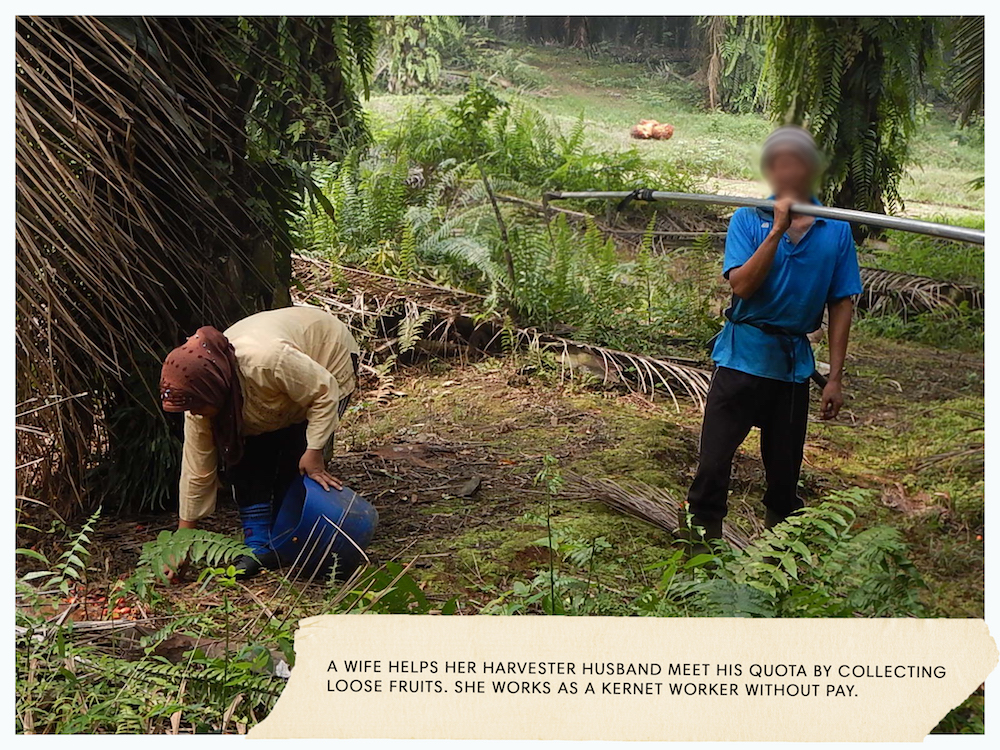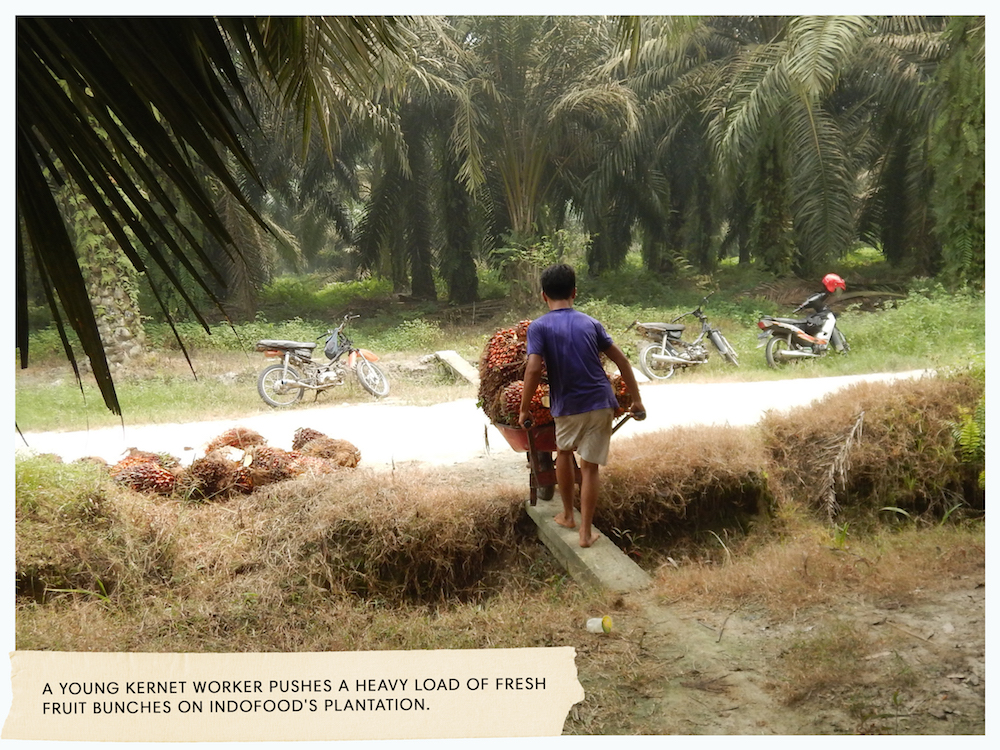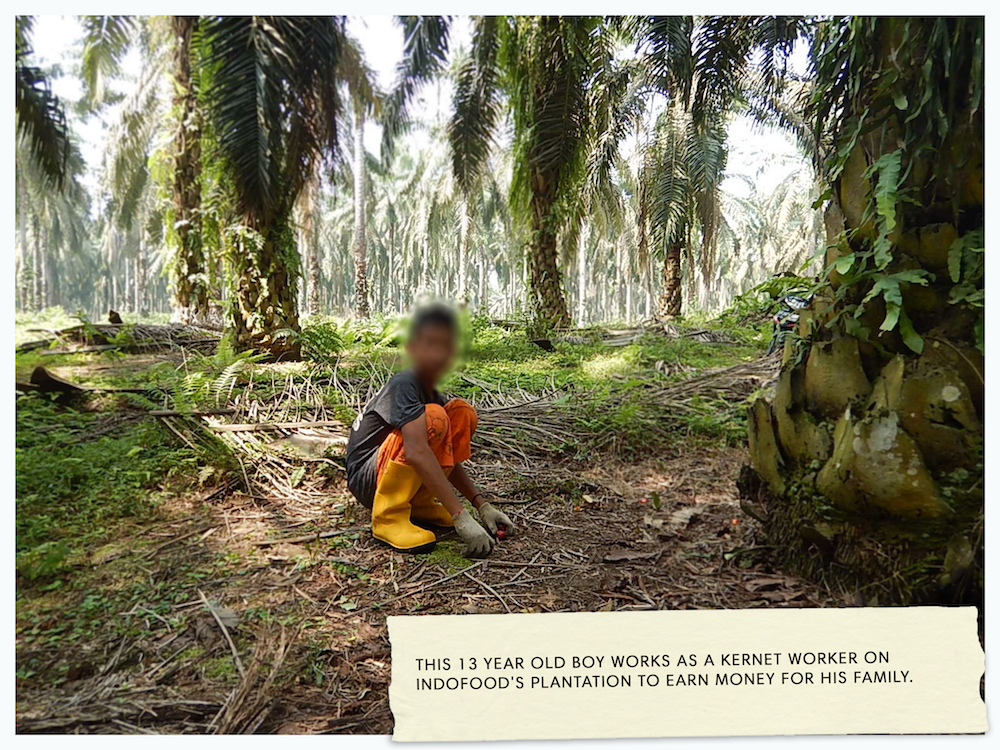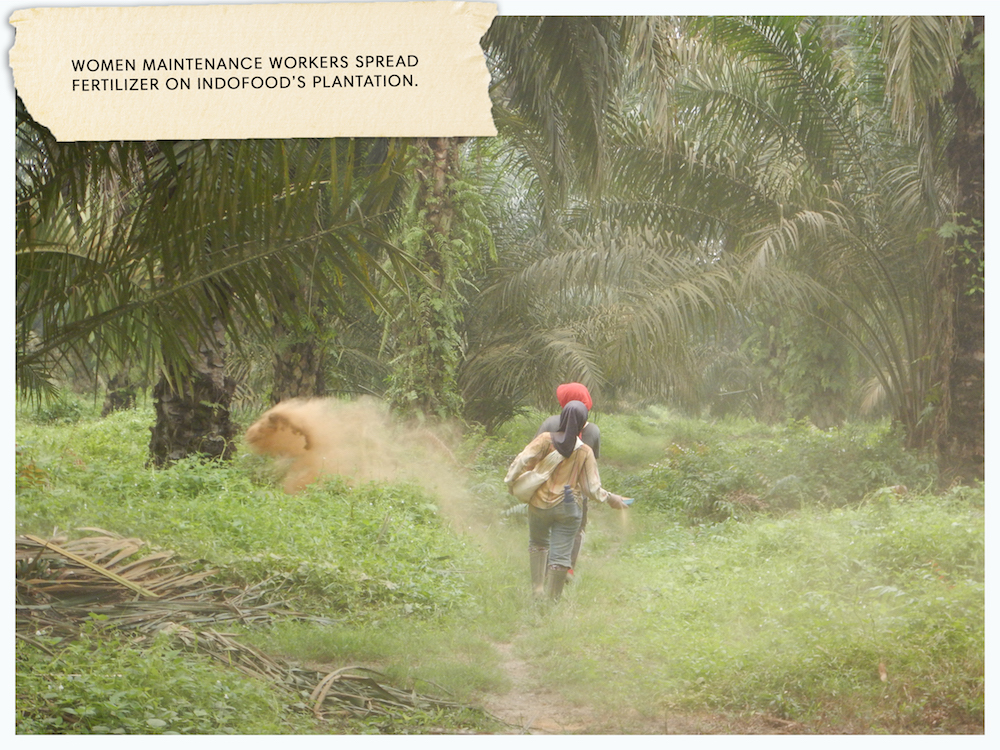There are so many stories behind the production of palm oil. Stories of rampant deforestation, toxic haze from man-made fires, and sky high climate emissions are a few that have claimed international headlines in the past years. Stories we don’t often hear, however, are the stories of the estimated 3.5 million people working on palm oil plantations.
In Indonesia palm oil is big business and millions of workers help make it so. But what are the conditions these workers face? Are their jobs good jobs? Are they able to support their families and earn enough to help their children get ahead?
We sought to answer these questions with our recent research into labor conditions on the palm oil plantations of major Indonesian palm oil company Indofood.

Although most people in the United States haven’t heard of Indofood, they have definitely heard of some of the products they produce: Lay’s, Cheetos, Pepsi. Indofood is PepsiCo’s joint venture partner and the sole maker of all PepsiCo branded products in Indonesia. The company also makes popular Indonesian products like instant noodles Indomie and Pop Mie.
Our new report titled, “The Human Cost of Conflict Palm Oil: Indofood, PepsiCo’s Hidden Link to Worker Exploitation in Indonesia,” reveals that Indofood is violating the fundamental rights of workers on its palm oil plantations.

Our research found that the workers on Indofood’s plantations live in a world dominated by palm oil. The plantations stretch for miles in every direction, and the company has nearly complete power over the livelihoods of its workers. Women are rarely afforded full, permanent employment and are given some of the most toxic jobs applying highly hazardous pesticides. Harvesters, one of relatively few permanent positions, struggle under a high quota system which forces them to bring their wives and children to work with them for help to earn the measly base pay––well below a living wage. Children leave school and childhood behind and work in the rows of palm oil trees to help their families make ends meet.

PepsiCo must take bold action to address the abuses in its supply chain. PepsiCo must fix the loophole in its current policy by requiring that Indofood comply with the all principles of its policy on a rapid timeline, as well as work rapidly to remedy the labor violations outlined in this report and adopt and implement a truly responsible palm oil policy that requires the production and sourcing of palm oil in accordance with the Free and Fair Labor in Palm Oil Production: Principles and Implementation Guidance (Fair Labor Principles).

Palm oil workers linked to PepsiCo products deserve the right to a living wage, a safe and healthy work environment and a future for their children, but as long as PepsiCo refuses to address its supply chain in Indonesia, it will continue to deprive these workers of those rights.
